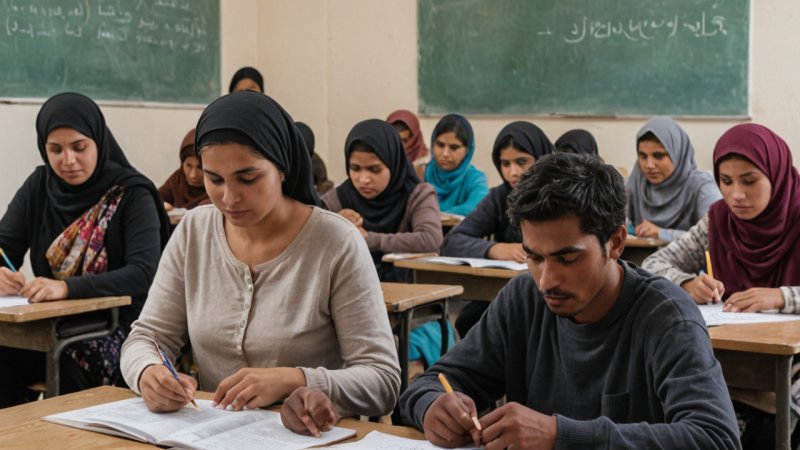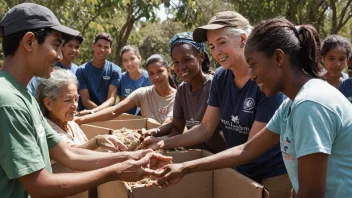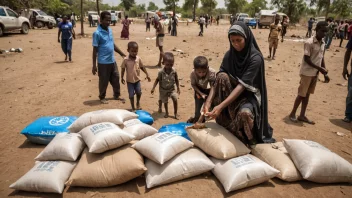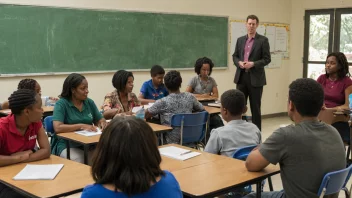The plight of refugees often evokes deep empathy and calls for action. Among the myriad challenges they face, literacy stands out as a pivotal issue that profoundly affects their ability to integrate into new societies and rebuild their lives. This article explores the multifaceted challenges of literacy in refugee populations, delving into the barriers faced, the implications for individuals and communities, and the initiatives aimed at fostering literacy among refugees. By shedding light on this critical topic, we hope to inspire action and awareness about the importance of literacy in empowering displaced individuals.
Understanding the Refugee Experience
Refugees are individuals who have fled their home countries due to persecution, conflict, or violence. According to the United Nations High Commissioner for Refugees (UNHCR), as of 2021, there were over 26 million refugees worldwide, a number that continues to rise due to ongoing global conflicts. The refugee experience is characterized by trauma, loss, and uncertainty, which can severely impact an individual's mental and emotional health.
Within this context, literacy emerges as a critical component of rebuilding lives. Literacy is not merely the ability to read and write; it encompasses a range of skills that enable individuals to navigate their environments, access information, and participate fully in society. For refugees, literacy can be a gateway to education, employment, and social integration.
The Barriers to Literacy for Refugees
1. Language Barriers
One of the most significant challenges refugees face is the language barrier. Many refugees arrive in host countries without proficiency in the local language, which hampers their ability to engage in educational opportunities. Language is the foundation of literacy; without it, individuals struggle to read and write effectively.
2. Interrupted Education
Many refugees have experienced interruptions in their education due to conflict or displacement. Children and adults alike may have missed years of schooling, leading to gaps in their literacy skills. For those who have had some education, the transition to a new curriculum can be daunting, especially if they are unfamiliar with the educational system in their host country.
3. Trauma and Mental Health Issues
The psychological impact of displacement can also hinder literacy development. Refugees often carry the weight of trauma from their past experiences, which can manifest as anxiety, depression, or post-traumatic stress disorder (PTSD). These mental health challenges can impede concentration and motivation, making it difficult for individuals to engage in learning activities.
4. Economic Constraints
Economic instability is another barrier to literacy for many refugee families. Limited financial resources can restrict access to educational materials, technology, and transportation to schools or literacy programs. Additionally, many refugees may prioritize immediate survival needs over education, making it challenging to focus on literacy development.
5. Cultural Differences
Cultural differences can also influence literacy participation. For some refugees, cultural norms may not emphasize formal education, or there may be a lack of trust in the educational system of the host country. This can lead to disengagement and reluctance to participate in literacy programs.
The Importance of Literacy for Refugee Populations
Literacy is not only an individual asset but also a community resource. It plays a crucial role in the overall well-being of refugees and their ability to thrive in new environments. Here are some key reasons why literacy is essential for refugee populations:
1. Empowerment and Self-Sufficiency
Literacy empowers refugees by providing them with the knowledge and skills necessary to navigate their new surroundings. It enables them to access essential services, such as healthcare, legal assistance, and education. With improved literacy skills, individuals can pursue job opportunities, fostering self-sufficiency and reducing dependency on aid.
2. Social Integration
Literacy facilitates social integration by enabling refugees to communicate effectively with their neighbors and participate in community activities. It fosters connections and understanding between refugees and local populations, promoting social cohesion and mutual support.
3. Educational Opportunities
For refugee children, literacy is a gateway to educational opportunities. It is essential for academic success and can significantly impact future employment prospects. By building a strong foundation in literacy, refugee children can pursue higher education and contribute positively to society.
4. Advocacy and Participation
Literacy equips refugees with the skills to advocate for themselves and their communities. It enables them to engage in civic activities, understand their rights, and participate in decision-making processes that affect their lives. Literacy fosters a sense of agency and empowerment, allowing refugees to voice their needs and aspirations.
Successful Initiatives Promoting Literacy in Refugee Populations
Despite the challenges, various organizations and initiatives are working to promote literacy among refugee populations. These programs often adopt innovative approaches to address the unique needs of refugees:
1. Community-Based Literacy Programs
Community-based literacy programs play a crucial role in providing accessible educational opportunities for refugees. These programs often incorporate local languages and cultural contexts, making learning more relevant and engaging. They create safe spaces where refugees can learn at their own pace and build supportive networks.
2. Mobile Learning Initiatives
With the rise of technology, mobile learning initiatives have emerged as a powerful tool for promoting literacy among refugees. These programs leverage mobile phones and apps to deliver educational content, enabling refugees to learn anytime and anywhere. Mobile learning can be particularly effective for individuals who may have difficulty accessing traditional educational settings.
3. Partnerships with Local Schools
Collaboration between refugee organizations and local schools can enhance literacy opportunities for refugee children. By integrating refugee students into mainstream classrooms and providing additional support, schools can create inclusive environments that foster literacy development. Bilingual education programs can also help bridge the language gap.
4. Mental Health Support Services
Recognizing the impact of trauma on learning, some literacy programs incorporate mental health support services. By addressing the psychological needs of refugees, these programs can create a holistic approach to education that promotes both literacy and emotional well-being.
5. Advocacy and Awareness Campaigns
Advocacy and awareness campaigns play a vital role in raising public consciousness about the challenges refugees face regarding literacy. These campaigns can mobilize community support, influence policy changes, and promote inclusive educational practices that benefit refugees.
How Individuals Can Get Involved
Individuals can play a significant role in supporting literacy initiatives for refugees. Here are some actionable steps that anyone can take to make a difference:
1. Volunteer with Local Organizations
Many organizations work directly with refugee populations and are in need of volunteers. Consider offering your time to help with literacy programs, tutoring, or language classes. Your skills and support can have a meaningful impact on the lives of refugees.
2. Advocate for Refugee Rights
Raise awareness about the challenges refugees face and advocate for policies that promote their rights and access to education. Engage in conversations with your community, share information on social media, and support initiatives that aim to improve the lives of refugees.
3. Donate Resources
While this article avoids fundraising, consider donating educational materials, such as books, stationery, or technology, to local organizations that support refugees. These resources can enhance literacy programs and provide refugees with the tools they need to succeed.
4. Become a Language Partner
If you speak the local language, consider becoming a language partner for refugees. Offering informal language practice can help improve their communication skills and build confidence in their ability to engage with their new community.
5. Stay Informed
Stay informed about global issues related to refugees and literacy. By understanding the complexities of the refugee experience, you can better advocate for change and support initiatives that address their needs.
Conclusion
The challenges of literacy in refugee populations are vast and multifaceted, but they are not insurmountable. By understanding the barriers faced by refugees and recognizing the critical importance of literacy in their lives, we can work together to create a more inclusive and supportive environment. Through community initiatives, individual actions, and advocacy efforts, we can empower refugees to overcome these challenges and build brighter futures for themselves and their families. Literacy is not just a skill; it is a vital lifeline that can transform lives and communities.






